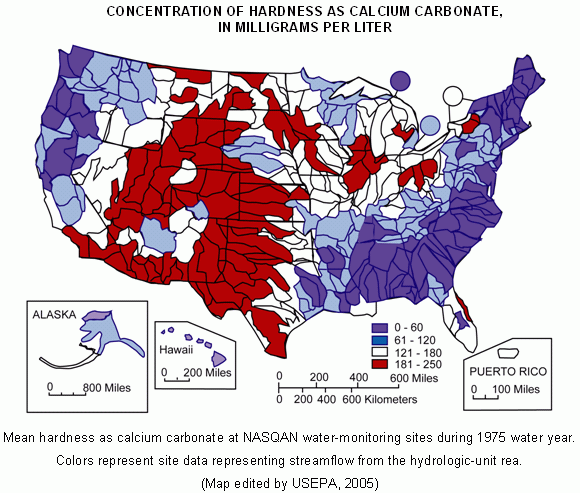Water Softeners Vs Water Filters: What’s The Difference?
Customers often ask us about the difference between water softeners and water filters. It’s a good question. Fertilizers, pesticides, and other harmful material and chemicals get swept into our water supply every day. Water softeners and water filtration systems can catch these contaminants and get rid of them before they reach your showerheads and faucets.
Water Softening
Water softening systems are specifically designed to reduce the amount of metals and minerals in your water. Mostly composed of calcium and magnesium bicarbonates, “hard water” is not necessarily dangerous, but it can present many problems for your plumbing system and hooked-up appliances.
Hard Water, What’s That?
The term “hard water” refers to the concentration of minerals in a certain volume of water. The U.S. Department of the Interior sets forth the following guidelines to determine if your water is “hard”:
| Description | Grains/Gallon | Mg/L (ppm) |
| Soft | Under 1.0 | Under 17 |
| Slightly Hard | 1.0 – 3.5 | 17 – 60 |
| Moderately Hard | 3.5 – 7.0 | 61 – 120 |
| Hard | 7.0 – 10.5 | 121 – 180 |
| Very Hard | Over 10.5 | Over 180 |
You can refer to this map to see average water hardness levels across the country:

Source: water.usgs.gov
Signs and Symptoms of Hard Water
- Scaling (mineral deposits) on dishes and glassware
- Scaling on plumbing fixtures and drains
- Difficulty cleaning and lathering
- Reduced flow rates and clogs
- Skin and hair feel dry and rough
Water Filters & Filtration
“Water filtration” is a very broad term that encompasses many varying levels of filtration, including water softening.
Think of water filtration as an umbrella term that includes:
- Water softeners
- Whole-home water filters
- Point-of-use water filters
- Sediment filters
- Reverse osmosis filters
- Backwashing carbon filters
- Fluoride absorption filters
Different water filtration systems serve different purposes, so it’s important that you have your water tested before purchasing one. Some systems have the technology to remove minerals and metals, like water softeners, while others focus on things like chlorine and fluoride.
Some water filters use a series of prefilters and backwashing cycles, while others use UV lamps to kill microbes, bacteria, and viruses. Reverse osmosis membrane filtration is also used to filter microscopic contaminants.
It’s important to test your water supply to know which inorganic, organic, or pathogens are in your water supply. These include:
- Metals and minerals
- Phosphates, carbonates, nitrates, sulfates, and cyanide
- Radon
- Carbon Tetrachloride
- Benzene
- Vinyl Chloride
- Trihalomethanes
- Cryptosporidium
- Giardia
- Legionella
- And other waterborne viruses
If you want an accurate measurement of your water quality and the hardness of your water, either call a professional, like Moffett Plumbing & Air, or buy a water testing kit from your local hardware store. For a total solution, many homeowners opt for both a water softening system and a water filtration system. These systems offer the most complete protection for your water supply.
If you want to schedule a water quality testing appointment with one of our professional plumbers, simply give us a call or send us a message online. We’d love to hear from you and be of assistance!
For the best water quality imaginable, we offer top-of-the-line water filtration systems:
- Water Softeners
- Reverse Osmosis
- Whole-House and Point-of-Use Water Filtration
For more water quality tips, visit the Water Quality Association (WQA) website.